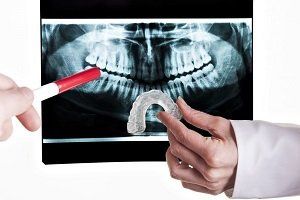The Issues and Pain from Nighttime Teeth Grinding
- By Mary Marks
- •
- 02 Jan, 2020
- •

The scientific name for nighttime teeth grinding is bruxism. The causes for it are not clear, however most people outgrow this habit by the age of 3. Yet, there are adults who grind their teeth during the night. And they suffer a lot due to bruxism.
Here are some of the major risk issues connected with nighttime teeth grinding:
1. Damage to Teeth, Crowns and Restorative Work
Continuous grinding damages the natural enamel of the teeth and weakens restorative work performed by a Colorado sedation dentist. In time, people who suffer from bruxism will develop chronic tooth pain and/or need to replace their crowns and other dental works.
2. Tension Type Headaches
Grinding the teeth contracts the muscles of the face and head. This constant tension of the muscles leads to tension type headaches. These headaches can be quite debilitating and harm people’s professional and personal lives.
3. Facial and Jaw Pain
This type of pain is intense and cannot be ignored. When it occurs during the night, it can prevent a person from enjoying normal sleep. In turn, sleep deprivation can cause several health problems, from chronic fatigue to digestive and neurological issues.
Bruxism can be treated by stress or anxiety management or other therapies recommended by your doctor. Thus, it is important to seek help as soon as you notice any of the symptoms above.





Although oral sedation dentistry Highlands Ranch is one of the optionsavailable for managing anxiety and discomfort during oral surgery, you certainly do not need to use it all the time. As a matter of fact, the exact type of sedation or anesthesia that you receive during oral procedures may depend on various factors, such as the complexity of the procedure, your medical problems, as well as your doctor’s preferences.
There can be several different levels of sedation that can be used in oral surgery. Local anesthesia is one of them. This involves injecting anesthetic medication into the specific area where the surgery will take place. It numbs the area and is often used for less invasive procedures.
Oral sedation involves taking medication in the form of a pill to induce a state of relaxation and drowsiness. The patient is still conscious, but he/she may not be fully aware of the procedure. At any rate, sedation helps him/her get rid of anxiety.
In the case of intravenous sedation, medication is administered through a vein, which induces a deeper state of sedation than oral sedation. Patients may still be conscious, but they are less aware of their surroundings and may not remember the procedure.





